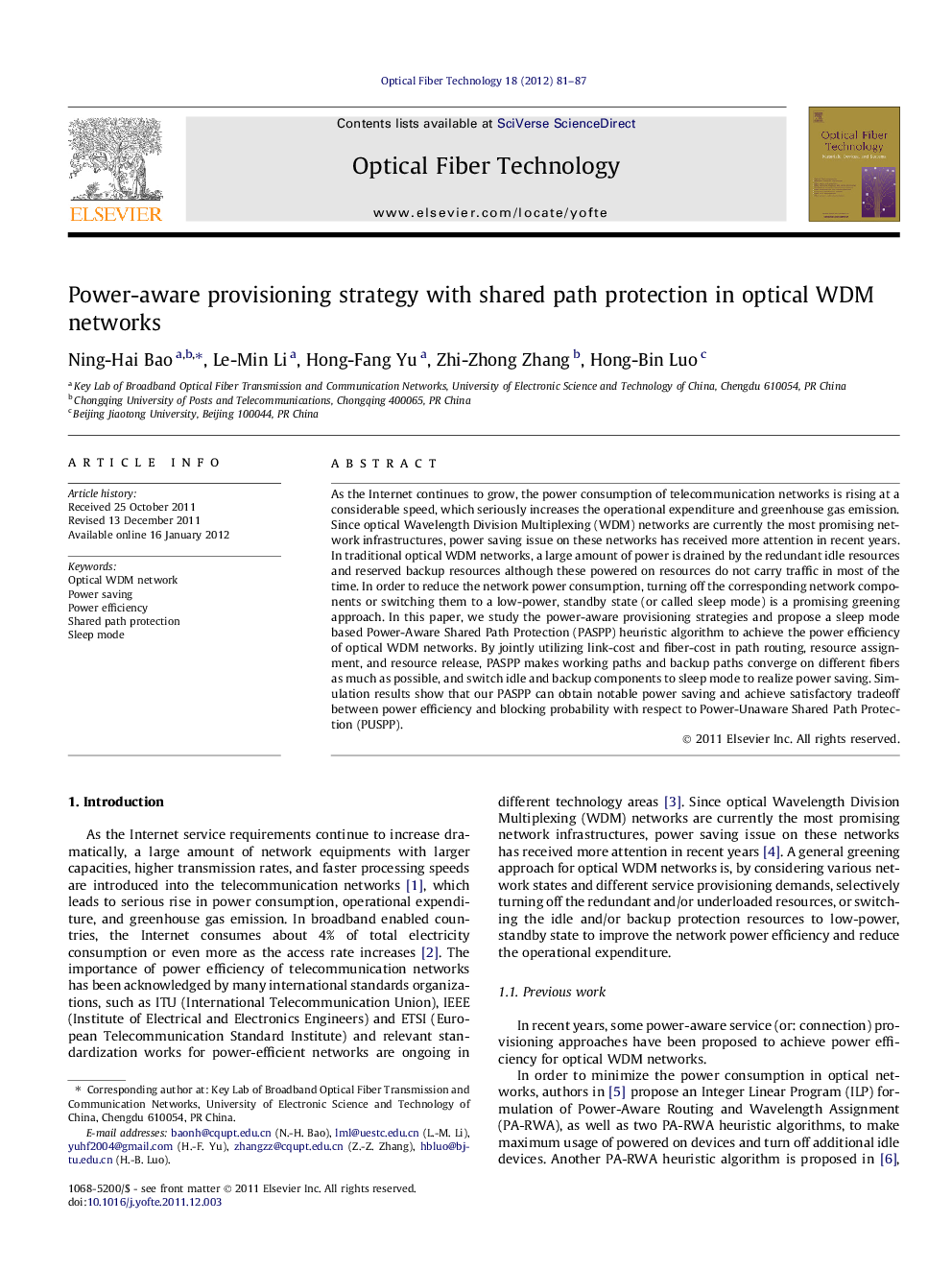| Article ID | Journal | Published Year | Pages | File Type |
|---|---|---|---|---|
| 464215 | Optical Fiber Technology | 2012 | 7 Pages |
As the Internet continues to grow, the power consumption of telecommunication networks is rising at a considerable speed, which seriously increases the operational expenditure and greenhouse gas emission. Since optical Wavelength Division Multiplexing (WDM) networks are currently the most promising network infrastructures, power saving issue on these networks has received more attention in recent years. In traditional optical WDM networks, a large amount of power is drained by the redundant idle resources and reserved backup resources although these powered on resources do not carry traffic in most of the time. In order to reduce the network power consumption, turning off the corresponding network components or switching them to a low-power, standby state (or called sleep mode) is a promising greening approach. In this paper, we study the power-aware provisioning strategies and propose a sleep mode based Power-Aware Shared Path Protection (PASPP) heuristic algorithm to achieve the power efficiency of optical WDM networks. By jointly utilizing link-cost and fiber-cost in path routing, resource assignment, and resource release, PASPP makes working paths and backup paths converge on different fibers as much as possible, and switch idle and backup components to sleep mode to realize power saving. Simulation results show that our PASPP can obtain notable power saving and achieve satisfactory tradeoff between power efficiency and blocking probability with respect to Power-Unaware Shared Path Protection (PUSPP).
► We study the power-aware connection provisioning strategies in optical WDM networks. ► We illustrate the conflict between network power efficiency and blocking probability. ► We propose a sleep mode based Power-Aware Shared Path Protection (PASPP) algorithm. ► PASPP can obtain notable power saving in optical WDM networks. ► PASPP can achieve satisfactory tradeoff between power efficiency and blocking probability.
